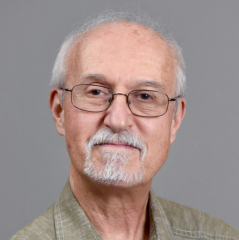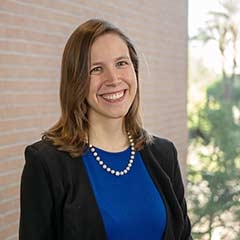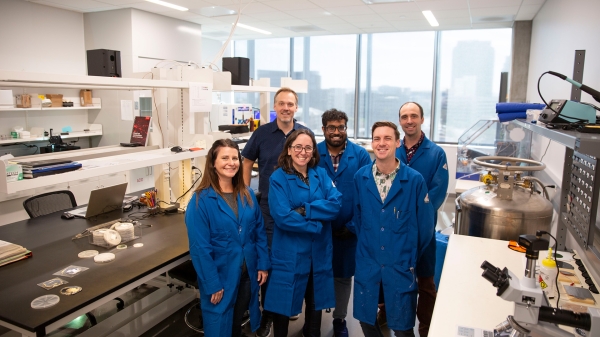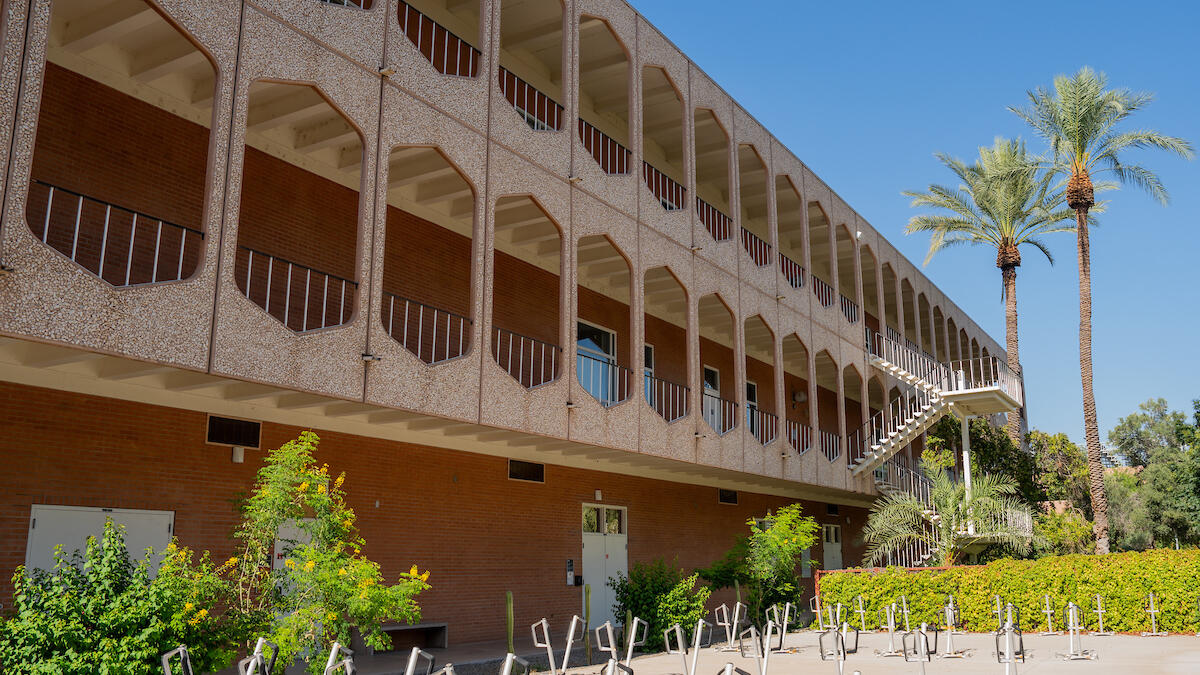Faculty members in the Department of Psychology, a unit within The College of Liberal Arts and Sciences at Arizona State University, received exceptional research awards and scholarly accolades leading up to the new semester.
The diversity of projects and awards announced this summer reflects the breadth of expertise in ASU’s psychology department. Faculty members are organized into six specializations: behavioral neuroscience and comparative psychology; clinical psychology; cognitive science; developmental psychology; quantitative research methods; and social psychology. Professor Tamera Schneider, chair of the department, says she’s impressed with the quality and breadth of research, as well as the collaborative spirit in the department.
“We’re committed to developing foundations and deploying solutions for healthy minds, bodies and societies," she said. "I’m extremely proud of the innovative work we’re doing. From cells to society, our researchers are improving lives and communities."
Take a closer look at what psychology faculty will be working on this fall:
Research awards
Athena Aktipis

Aktipis, an associate professor and director of The Cooperation Lab, has been awarded $1.5 million by the National Science Foundation to tackle the growing gap in society’s ability to manage risk, especially those stemming from ecological changes and natural disasters.
Rare events like floods and droughts are becoming more common, and misinformation about hazards, risks and how to manage these events is being exasperatingly spread through the internet, explained Aktipis. As the principal investigator on the grant-funded project, Aktipis and her team will employ gamification and narrative storytelling to benefit vulnerable communities and risk managers by developing effective strategies and outreach initiatives.
Under this grant, three app-based video games will be designed, including “The Survival Game,” in which players manage herds of cows, fostering cooperation for survival. Aktipis and her colleagues originally developed this game concept for the Exploratorium, a science museum in San Francisco. The goal is for participants to learn more about managing risk through need-based sharing and other risk management strategies.
Aktipis — a cooperation theorist, social psychologist, theoretical evolutionary biologist and cancer biologist — believes teamwork and cooperation are some of the most powerful forces in the world.
“This work will reach diverse segments of society — from low-income communities struggling to deal with disasters to water managers in the desert Southwest trying to increase the resilience of the water supply," she said. "Those who will be most positively impacted are those who are most vulnerable, including communities in regions with high risk of natural hazards.”
To learn more from Aktipis, tune into ASU Learning Sparks, where ASU faculty transform complex ideas into easily digestible educational experiences.
Foster Olive
Olive, professor and head of the Addiction Neuroscience Lab at ASU, examines how abused drugs affect the brain on a neurobiological level. He was granted a research fund of $1.7 million from the National Institute on Alcohol Abuse and Alcoholism (NIAAA) to investigate the neural mechanisms behind binge drinking.
Olive’s prior research discovered that binge alcohol consumption activates specific endorphin-producing neurons in the hypothalamus, a brain region linked to behavior regulations. Specifically, the arcuate nucleus, rich in endorphin-producing neurons, forms connections with the amygdala, which controls emotions. The NIAAA funded study will expand on this research, investigating brain circuits associated with excessive drinking.
Characterized by intricate connections between various nerve cells and the involvement of different types of chemical signals, brain circuits are not limited to neurons alone. Non-neuron cells also participate in coordinated activity across brain regions. Olive explained this study will determine exactly what subtypes of endorphin neurons and circuits in the brain are sensitive to binge drinking, leading to more effective addiction treatments and improved outcomes for those facing addiction-related challenges.
“Our hope is to identify specific circuits in the brain whose primary chemical messengers — endorphins — regulate binge drinking and how these circuits go awry when someone binge drinks repeatedly to the point of self-harm,” Olive said. “With that knowledge in hand, hopefully newer neuromodulation technologies that allow for precise retuning of specific brain circuits can be used as intervention strategies for individuals struggling with alcohol dependence and uncontrollable episodes of binge drinking.”
Irwin Sandler

Sandler, a research professor and Regents Professor emeritus at the Research and Education Advancing Children’s Health (REACH) Institute in ASU’s Department of Psychology, has been awarded a $925,000 research grant from The New York Life Foundation. The grant aims to evaluate the effectiveness of a digital program designed to aid caregivers of children who have experienced the death of a parent and to facilitate its widespread dissemination.
His prior work on the Family Bereavement Program, which was funded by the National Institute of Mental Health, involved a randomized trial that demonstrated significant impact in preventing long-term mental health issues of children who had experienced the death of a parent. The program reduced the incidence of major depression in bereaved youth, even fifteen years after, and demonstrated significant long-term benefits for the surviving bereaved, including decreased prevalence of prolonged grief-related distress six years down the line.
The New York Life Foundation supported Sandler and his team in translating these experimental results into a service that can be easily provided by community-based service providers. They have trained numerous individuals to deliver the caregiver component of the Resilient Parenting for Bereaved Families program. An evaluation has confirmed its positive impact in strengthening caregiver-child relationships, alleviating caregiver-complicated grief and reducing child behavior problems.
Now, The New York Life Foundation is assisting Sandler and his team in digitizing the program into the Online Resilient Parenting for Bereaved Families Program (eRPBF) to reach a wider population of caregivers of children who have experienced the death of a parent. Over the course of three years, the new grant enables Sandler and his team to partner with community agencies and professionals that work with bereaved families to evaluate and disseminate the digital program. The grant will also aid in developing cultural adaptations of the program that make it fully resonant with the life experiences of African American and Latino bereaved families.
“It’s been both an intellectual challenge and a personal privilege to develop research-based tools that can support caregivers and their families following the death of a parent," Sandler said. "Our challenge now is to make these programs accessible to all families who need them so that they really make a difference in the lives of children.”
Michelle Shiota
Shiota, professor and director of the Shiota Psychophysiology Laboratory for Affective Testing (SPLAT) Lab at ASU, has launched not one, but two funding projects totaling over $270,000. Both grant-funded projects address the escalating opioid crisis.
One project, a collaboration with REAL Prevention, refines and evaluates a new technology aimed at reducing deaths by opioid overdose. By teaching community responders to use Naloxone — a nasal spray that can rapidly reverse an opioid overdose — and using an app called PulsePoint to alert community responders to a possible overdose happening nearby, the Opioid Rapid Response System directs lifesaving measures to people in need until emergency services can arrive. Shiota will help develop the training program and assess effects on community responders’ knowledge and confidence in administering Naloxone. The project will monitor the overall impact on participating communities as well, in terms of overdose survival rates.
In the second project, Shiota leads a contract between the city of Phoenix and the Substance Use and Addiction Translational Research Network (SATRN) — a collective of university researchers, community-based prevention and treatment practitioners, and policymakers across the state of Arizona dedicated to reducing death and distress associated with substance use disorder. Shiota and other SATRN affiliates will advise the city of Phoenix on potential uses for opioid settlement funds, developing and analyzing assessment surveys and recommending training and other initiatives addressing the most pressing needs.
“City of Phoenix residents and employees alike are encountering people struggling with opioid-related problems in their daily lives. Through this partnership, SATRN is helping to capture and understand people’s experiences, and learn what initiatives residents and city staff think would be most helpful,” Shiota said. “While these two projects differ in many ways, both engage community members in helping to save lives and rely on teamwork and knowledge-sharing to develop solutions.”
Scholarly accolades
Samantha Anderson

Anderson, an assistant professor in quantitative psychology, was elected into the Society of Multivariate Experimental Psychology (SMEP). This distinguished assembly of 65 experts champions multivariate quantitative methods’ application in psychology and allied fields. An individual’s SMEP membership spans from the time of election to the age of 65.
“It is such an honor to have been elected into SMEP by my quantitative methods colleagues, especially this early in my career. So many of the greats of my field have been members of this organization, and I am humbled to be a new part of such a longstanding research society,” Anderson said.
Anderson joined ASU in 2018. She probes research design, statistical methods and metascience, spotlighting practical and rigorous approaches that encompass potent sample size planning, replication remedies, multiplicity’s impact on Type 1 error rates and power, and approaches for missing data.
Driven to enhance accessibility, Anderson co-developed open-source software for unbiased sample size planning and recently received the Rising Star Award from the Association for Psychological Science for her pioneering early-career research.
David MacKinnon
MacKinnon, Regents Professor and director of the Research in Prevention Lab, instructs graduate analysis of variance, mediation analysis and statistical methods in prevention research courses at ASU. This fall, he’ll further amplify his influence by serving as a McCausland Visiting Scholar at the University of South Carolina (USC). This premier faculty program is reserved for award-winning, impactful researchers who foster interdisciplinary collaboration.
MacKinnon’s distinguished career encompasses vital roles, including as a founding member and inaugural fellow of the Society for Prevention Research (SPR), as well as serving as a fellow of the Association for Psychological Science and the American Psychological Association's Division 5: Quantitative and Qualitative Methods. He has also previously served as president of the Society for Multivariate Experimental Psychology.
His decades of experience in research and leadership in quantitative methodology offers a unique perspective on the evolution of quantitative psychology and its promising research avenues. As a McCausland Visiting Scholar, MacKinnon will expand on his existing collaborations with USC researchers by delivering guest lectures to students, engaging with faculty like Amanda Fairchild and presenting compelling public seminars.
“They have an outstanding group of quantitative and substantive psychologists at USC. The quantitative faculty conduct research in some of the major new directions in this area,” MacKinnon said. “I am very much looking forward to formal and especially informal discussion of a variety of topics as a McCausland Visiting Scholar.”
More Science and technology

ASU professor honored with prestigious award for being a cybersecurity trailblazer
At first, he thought it was a drill.On Sept. 11, 2001, Gail-Joon Ahn sat in a conference room in Fort Meade, Maryland. The cybersecurity researcher was part of a group that had been invited…

Training stellar students to secure semiconductors
In the wetlands of King’s Bay, Georgia, the sail of a nuclear-powered Trident II Submarine laden with sophisticated computer equipment juts out of the marshy waters. In a medical center, a cardiac…

ASU startup Crystal Sonic wins Natcast pitch competition
Crystal Sonic, an Arizona State University startup, won first place and $25,000 at the 2024 Natcast Startup Pitch Competition at the National Semiconductor Technology Center Symposium, or NSTC…



